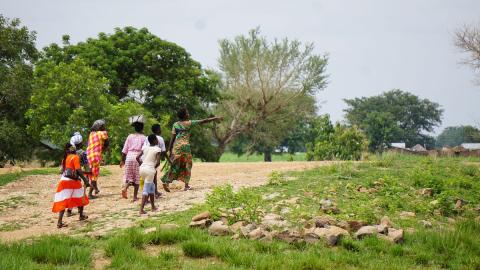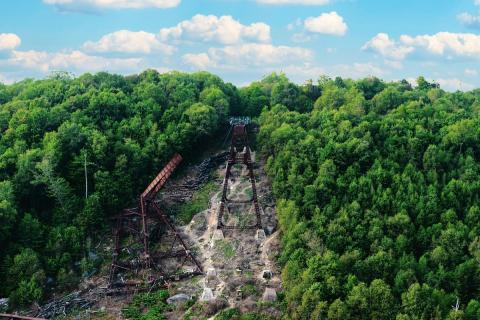Discover hidden stories and unheard voices on land governance issues from around the world. This is where the Land Portal community shares activities, experiences, challenges and successes.
 Follow our
Follow our
Sustainable Development Goals
Blog Series!
Interested in land corruption?
Follow our Land & Corruption Blog Series
for in-depth perspectives from the experts.
Issues
Geographical focus
“Mediation offers a peaceful alternative to litigation in land disputes, as seen in the SudCam case in Cameroon. By promoting dialogue and cooperation, mediation can help communities protect their land rights and livelihoods.”
Blog by Francis Simeu, TI Cameroon, to celebrate International Human Rights Day
At the Rome launch of the Global Comparative Report on Security of Property Rights for Land and Housing in 2024 presented by Prindex initiative on October 22, alarming new data revealed that 1.1 billion people worldwide feel insecure about their property rights, reflecting an escalating global crisis in housing and land tenure. The findings, derived from Prindex data, present a worrying increase from 19% of the adult population in the surveyed 108 countries in 2020 to 23% in 2024—meaning almost one in four adults now fear losing their homes or land.
In the villages surrounding SudCam's vast rubber plantation in Southern Cameroon, the contrast between initial promises and current reality is striking. More than a decade after the establishment of this Halcyon Agri Corporation Limited subsidiary, local communities face a radical transformation of their environment and way of life.
Promising Beginnings, Rapid Disillusionment
Ibrahim has lived on the outskirts of Kenya’s capital city since he was born, 71 years ago. Five generations have lived, loved, studied, worked, and built their homes on this land. He is Kenyan. Proving that to the government and asserting his rights as a citizen, however, has been a life-long struggle.
Photo: A train traveling through a lush green forest by Ally Griffin (Unsplash License).
By Alice Stevens & Anoukh de Soysa
The Land Portal Foundation, in partnership with Transparency International, hosted the webinar titled "Breaking New Ground: Insights and Stories on the Impact of Land Corruption on Discriminated Groups in Africa." The webinar brought together a panel of distinguished experts to delve into the challenges and complexities of corruption intertwined with discrimination in land rights and governance. This session provided crucial insights through detailed case studies and expert analyses, offering pathways towards more equitable land management practices.
Weighing gold (Photo: Enough Project, via Flickr, CC BY-NC-ND 2.0 Deed)
Razina is different. Unlike most people in Madagascar, his skin is pale. His hair is blonde and his eyes are a light shade of pink. Razina has albinism.
He became aware of just how different he was at a very early age. When he arrived at school for the first time, all the other children teased and harassed him. The bullying continued throughout his time at school. “They treated me as less than human, like a dog,” he recalls.
48 Hours in Wales: what I learned about land rights from people who don’t work in land rights
A few weeks ago I had the good fortune to take part in an Aspen UK residential seminar at the University of Wales Trinity Saint David, in Lampeter, in rural Wales.
An in-depth global review of land resource resource grabbing is both timely and essential reading.
Today, I am on board the Greenpeace Arctic Sunrise ship, as we confront the fossil fuel company, Shell, for its role in causing climate devastation around the world - while paying nothing for this destruction. It is now a trend almost everywhere in the world, fossil fuel and oil extraction are becoming the new trend and a real treasure, to a chosen few. True, governments do need money, and it seems easier and quicker for them to have it through the exploitation of fossil fuels.












